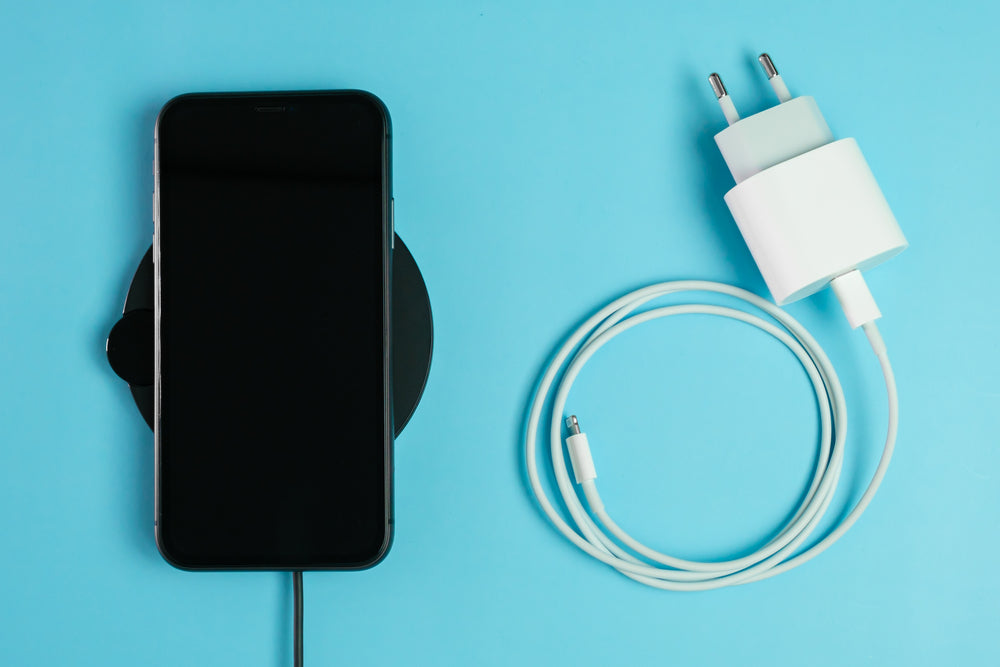
The Pros and Cons of a Wireless Charger vs Traditional Charger
Introduction:
In a world where technology evolves at lightning speed, our reliance on electronic devices is stronger than ever. With this dependence comes the perpetual need to keep our devices powered up. Charging methods have also evolved, offering users more convenience and options. Two prominent contenders in this race are the wireless charger and the traditional wired charger. In this blog, we'll dissect the pros and cons of each, helping you make an informed choice for your charging needs.
About RVP+:
Once upon a time, in the ever-evolving world of consumer electronics, there emerged a visionary brand known as RVP+. With a burning passion for innovation and a relentless pursuit of excellence, RVP+ set out on a mission to redefine the way people power and connect their devices. At RVP+, we believe that technology should seamlessly integrate into our lives, empowering us to achieve more, connect deeper, and explore limitless possibilities. Our journey began with a simple yet profound idea: to create high-quality, reliable phone chargers and laptop docking stations that elevate the user experience to new heights.
Pros of a Wireless Charger:
1 . Convenience: The most apparent advantage of wireless chargers is the convenience they offer. No more fumbling with tangled cords or searching for the right socket. With a wireless charger, you simply place your device on the charging pad, and the magic happens.
2 . Aesthetic Appeal: Wireless chargers often boast sleek and modern designs that can seamlessly blend into your home or office environment. They eliminate the clutter caused by multiple charging cables and adapters, offering a neater and more organized space.
3 . Ease of Use: Charging your device becomes a hassle-free task with wireless chargers. You can simply place your phone on the pad without worrying about plugging and unplugging cables. This is especially handy for those with limited dexterity or mobility issues.
4 . Future-Proofing: As technology progresses, more devices are adopting wireless charging capabilities. Investing in a wireless charger now ensures that you'll be prepared for future devices that might not even feature traditional charging ports.
Cons of a Wireless Charger:
1 . Slower Charging Speed: While wireless charging technology is improving, it still generally lags behind wired charging in terms of speed. If you're in a hurry and need a quick power boost, a wired charger might be the better option.
2 . Efficiency and Heat: Wireless charging can generate more heat compared to traditional charging, which might impact the efficiency of the charging process and even affect battery longevity over time.
3 . Placement Precision: Achieving the perfect placement on the charging pad can be finicky. If your device isn't aligned correctly, it might not charge at all or could charge at a slower rate. This requires a bit of trial and error.
4 . Compatibility: Not all devices support wireless charging. Before investing in a wireless charger, make sure your device is compatible, or you might find yourself with a stylish yet useless accessory.
Wireless Charger vs Traditional Charger:
Choosing between a wireless charger and a traditional charger boils down to personal preferences and needs. If convenience and aesthetics are your top priorities, a wireless charger might be the way to go. It offers a clutter-free environment, and an easy charging process, and prepares you for the devices of the future. However, if speed and efficiency are essential, a traditional charger is likely your best bet. It delivers a faster charge and is compatible with a wider range of devices.
Conclusion:
In the ever-evolving landscape of technology, the choice between a wireless charger and a traditional charger depends on what you value most. Wireless chargers bring unparalleled convenience and aesthetics to your charging routine but at the cost of potentially slower charging speeds and compatibility issues. On the other hand, traditional chargers offer faster charging and broader compatibility but come with the hassle of managing cords.
